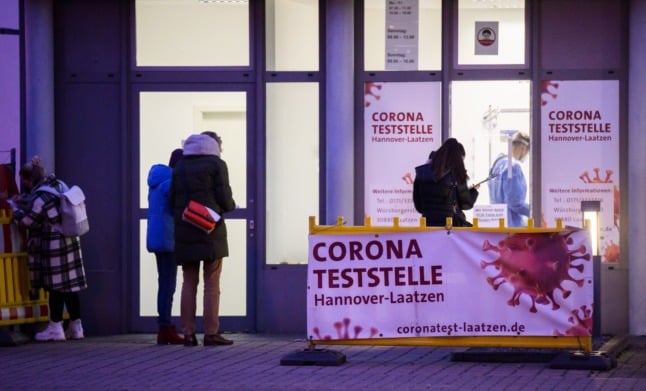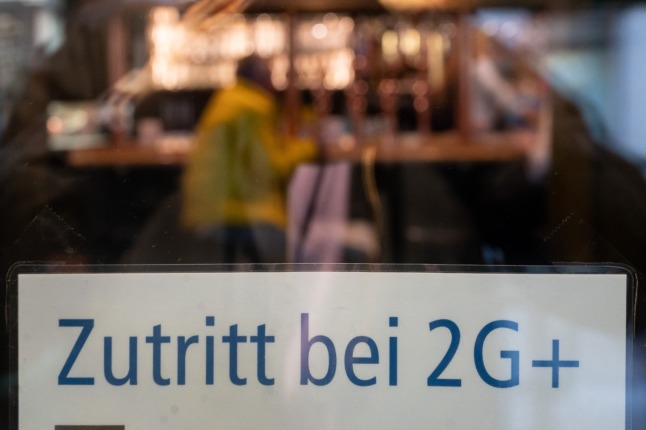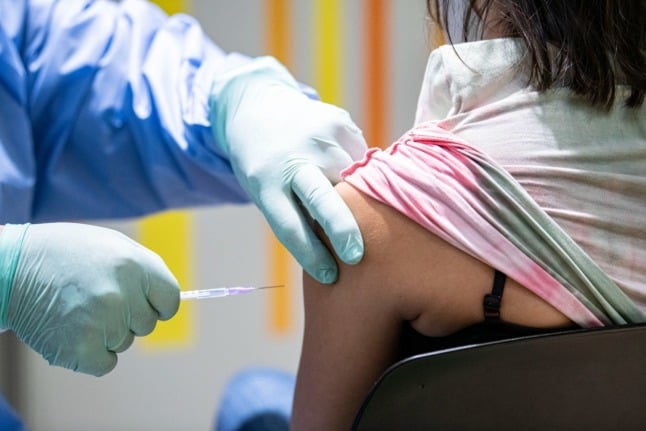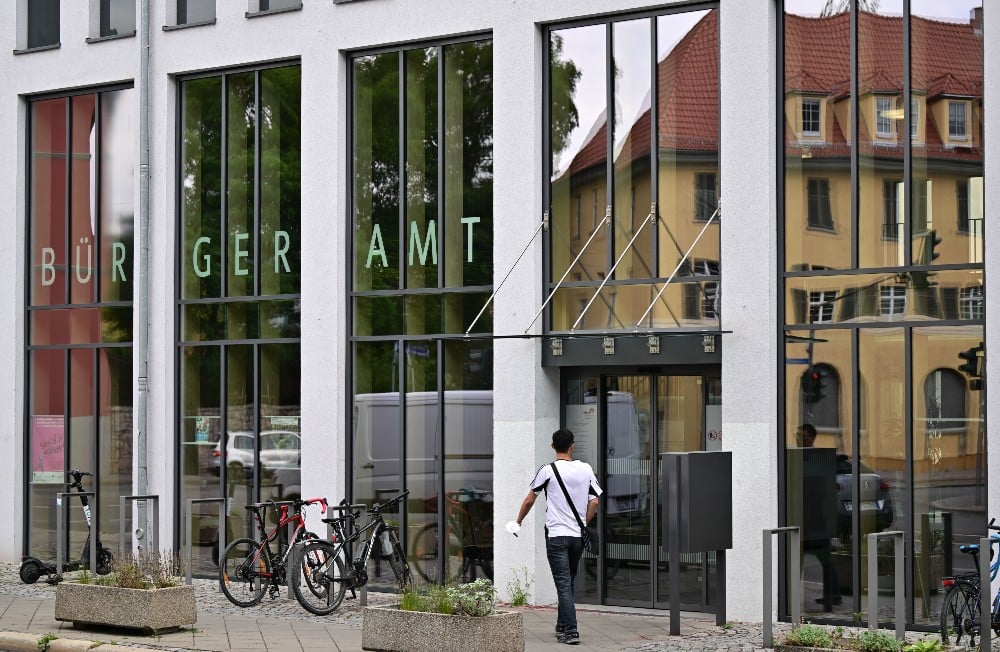What’s the background?
On January 14th, a new regulation came into force in Germany which gave the country’s top health authorities a lot more power. Decisions about how long the period of protection offered by vaccines and infections can now be taken directly by the Robert Koch Institute (RKI) and the Paul Ehrlich Institute (PEI) without the need of approval from the Bundestag.
The reasoning behind this – according to Health Minister Karl Lauterbach – is that it will allow the health authorities to react more quickly in response to the latest scientific findings.
So, what are the scientific findings which are guiding the most recent rules? We took a closer look at the available information and spoke to Professor Dr. Ralf Bartenschlager – President of the German Society of Virology and Head of the Department of Molecular Biology at the University of Heidelberg – for some scientific insights.
READ ALSO: ‘Hard to keep up’: Your verdict on Germany’s ever-changing Covid rules
What counts as being ‘recovered’ from Covid in Germany?
On January 15th, an announcement on the RKI website reduced the duration of the validity of the ‘recovered’ (genesen) status from six months to three months.
The official scientific basis for this reclassification, which has affected millions of people, is – according to the RKI web page – a recommendation from the German Standing Committee on Vaccination (STIKO) and two scientific studies.
The two studies are relatively limited in scope and were both carried in the UK. Though one of the studies demonstrates a larger risk of breakthrough infections with Omicron, it also shows that risk of hospitalisations is much lower.
But none of these sources indicate any reason why three months should be the cut-off point for protection from infection.
READ ALSO: Covid ‘recovered’ status only valid for three months, says German Health Ministry

Dr. Bartenschlager also couldn’t point to a specific source that advocated for a three-month deadline, though he told us that this much shorter period was probably decided on the basis of “the significant reduction of neutralisation of the Omicron variant by antibodies induced by current vaccines and, therefore, the need to keep immunity as high as possible”.
He added: “What isn’t clear however, is that the level of protection will be different for people who, for example, were fully vaccinated before getting infected, compared with those who had no vaccination and have only been infected. There is a clear difference in these two cases.”
We approached the German Health Ministry, asking them to the reasoning behind the shortened times.
A spokesman told us: “Scientific studies show that after recovering from Covid, people are not protected from infection with the Omicron virus variant for as long as before with the other variants.
“For this reason, shortening status times is necessary to effectively protect those who have recovered.”
But again, there was no clarification offered as to why the time period of three months had been chosen as the cut-off point for protection.
Further adding to the confusion, reports surfaced in the German media this week showed that the recovery certificates of German MPs continue to be valid for six months – not three – when they are attending debates in the German Bundestag.
READ ALSO: German parliament ‘granted exemption’ to keep six months Covid recovery status
Do the changes to the Johnson & Johnson jab requirements stand up?
Also on January 15th, the Paul Ehrlich Institute changed their assessment of the efficacy of the Johnson & Johnson vaccine – meaning those who had received only one dose would no longer be considered as fully vaccinated.
READ ALSO: Are people who’ve had the single J&J jab no longer fully vaccinated in Germany?
The downgrading was based on studies which showed that a severe course of infection caused by the Delta variant was reduced by only 70 percent with a single vaccination from Johnson & Johnson, while the other licensed vaccines proved much more effective. Additionally, most vaccine breakthroughs occurred in patients who had just had one Johnson & Johnson jab.
A German Health Ministry spokesman previously told The Local that, due to more vaccination breakthrough infections affecting people who’ve had the J&J vaccine, extra protection was needed.
On this subject Dr. Bartenschlager said: “The immunity with Johnson (J&J) doesn’t trigger the same level of protection as two doses of the mRNA vaccines.
“It may have been effective with the type of virus we were dealing with in the earlier stages of the pandemic, but for Delta it proved to be less effective and it could be even less with Omicron.”
READ ALSO: What people who’ve had the J&J jab need to know for travel to Germany
What counts as boosted?
There has also been much debate over what counts as being boosted. This is important to know in Germany at the moment because of the 2G-plus rules, which mean entry to many public places is limited to people who are vaccinated/recovered with a booster shot or a Covid test.
Dr. Bartenschlager who told us that, in his view, “being boosted, or having a higher level of protection from the virus, is best achieved after three contacts with the viral antigen. (This means how many times the immune system has come into contact with the virus – either through infection or a vaccination).
“What kind of contact that is – vaccine or recovery – appears to be relatively comparable, at least according to currently available data,” he said.

But as far as the rules are concerned, the type of virus contact matters very much.
In North Rhine-Westphalia, Schleswig-Holstein and Bavaria, for example, those vaccinated with Johnson & Johnson also must have two additional mRNA shots to qualify as boosted. But in Bremen, Hamburg and Lower Saxony, the optimisation dose (the second dose) has so far been sufficient for 2G-plus rules.
The states also deal very differently with vaccination breakthrough infections: while in Bavaria, Hamburg and North Rhine-Westphalia, a Covid infection after two jabs leads to a “boosted” status, in Baden-Württemberg, Hesse, Saarland and Thuringia those who have recovered after a vaccination breakthrough must also receive the booster vaccination in order to be granted the “boosted” status.
This can cause issues as doctors often require people to wait at least three months after an infection before getting an additional Covid jab.
Dr Bartenschlager told us: “It isn’t clear why boosted people (those who’ve had three jabs) are treated differently compared to the fully vaccinated (two jabs) having had an infection on top.”
Yet another uncertainty is from what point the booster jab is considered as coming into effect. In some states it is from the day of the booster, in others people only count as boosted two weeks after the jab.
Dr. Bartenschlager said: “From a scientific point of view, the booster coming into force immediately is questionable. The body usually needs one or two weeks to re-gain sufficient antibody levels.”
On the question of why the rules differ between the states, a German Health Ministry spokesperson said: “People who are fully vaccinated and who have had an infection are considered boosted. In this context, the definitions of the RKI and PEI apply nationwide.
“But it is up to the states to specify how to deal with 2G-plus access regulations in their state ordinances.”
Why is there so much confusion?
Some of the confusion may be a result of the new regulation – which gives power to the RKI and PEI to decide the length of time vaccines or recoveries are seen as offering protection.
It means that the RKI and PEI now effectively have the power to determine some of the restrictions on freedom – because access to many aspects of public life in Germany is permitted only to those who are fully vaccinated or recovered.
The way in which the rule changes have come into effect have also caused a lot of confusion: the regulation changes were mentioned only on the websites of the RKI and PEI, which are not regularly checked by millions of people.
There appears to have been no information campaigns or press release sent out by the government updating media on the changes so they could let people know.

READ ALSO: What documents do you need to carry for Germany’s 2G-plus restrictions?
The difference in rules across different German states is also another source of confusion. What is not clear, is why the scientific definition of what counts as “boosted” isn’t something that’s applied automatically to all states. Instead it’s up to the local governments to decide.
Dr. Bartenschlager told us: “Even for us specialists – it’s sometimes difficult to keep up with all the different rules and how they are locally applied.”
When is Germany likely to ease the rules?
Other European countries, like the UK and Ireland, are starting to ease restrictions. So what about Germany?
“The situation in Germany is not directly comparable with other countries,” Dr. Bartenschlager told us.
“In South Africa, the Omicron wave came and went very quickly – but they have a much younger population and a much higher percentage of people having had the infection; plus, they had the Beta variant, which we did not have.
“In Germany, we have around three million over 60s who are unvaccinated.”
Bartenschlager said if Germany “lifts restrictions and let the virus take its course,” there could be a lot more deaths.
But he is hopeful that things will change soon.
“Based on the data, we are expecting the peak around mid-February, and hopefully in late spring/early summer the situation should relax again,” Dr. Bartenschlager said.
READ ALSO:





 Please whitelist us to continue reading.
Please whitelist us to continue reading.
So our dear health minister has given unelected people the power to decide ultimately on peoples freedoms. How will these scientists be held accountable? They probably won’t be. They’ll resign next year and stroll into high paying jobs in pfizer.
These scientists have not produced the studies its just what they say? Show the evidence. If there is any.
Its like a carry on film. Would be funny if it wasn’t real and so tragic.
Carry on jabbing.
Good to note here, I think, that Switzerland honors natural immunity from infection for 1 year. I think it’s pretty clear who is running the show in Germany. Sad times for us all.
None of these scientists who make recommendations and rules have said a single word about all the other ways to protect yourself from infection. Get enough sleep, reduce stress, reduce the alcohol, stop smoking, regular exercise, supplement vitamin D during winter, make sure your zinc levels are good, etc.
Also, there’s no move to use ivermectin to provide some short term protection or early treatment for the vunerable and/or unvaccinated.
There’s plenty of recommendations they could make, on a voluntary basis, before putting in place all these confusing rules about vaccine and booster passes.
This brilliant video from John Campbell provides a better protection guide for covid-19 than anything I’ve heard from any government authority during the entire pandemic.
https://www.youtube.com/watch?v=mZAa1BsB2ZI
Get vaccinated, sure, but don’t act like that alone will help.
Peace out!
Oh, John Campbell is fantastic. Everyone should take a look at the above.